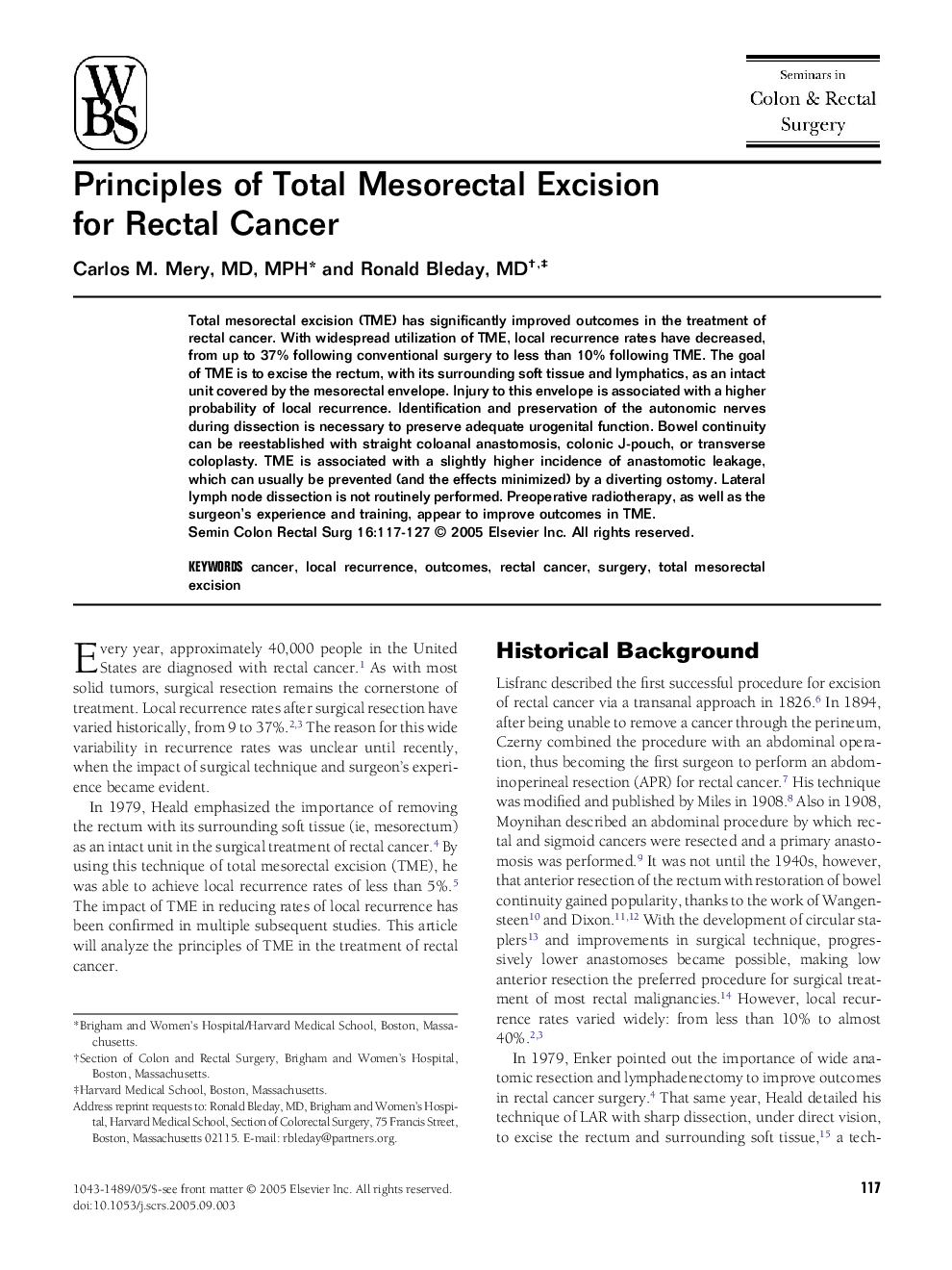| Article ID | Journal | Published Year | Pages | File Type |
|---|---|---|---|---|
| 9256526 | Seminars in Colon and Rectal Surgery | 2005 | 11 Pages |
Abstract
Total mesorectal excision (TME) has significantly improved outcomes in the treatment of rectal cancer. With widespread utilization of TME, local recurrence rates have decreased, from up to 37% following conventional surgery to less than 10% following TME. The goal of TME is to excise the rectum, with its surrounding soft tissue and lymphatics, as an intact unit covered by the mesorectal envelope. Injury to this envelope is associated with a higher probability of local recurrence. Identification and preservation of the autonomic nerves during dissection is necessary to preserve adequate urogenital function. Bowel continuity can be reestablished with straight coloanal anastomosis, colonic J-pouch, or transverse coloplasty. TME is associated with a slightly higher incidence of anastomotic leakage, which can usually be prevented (and the effects minimized) by a diverting ostomy. Lateral lymph node dissection is not routinely performed. Preoperative radiotherapy, as well as the surgeon's experience and training, appear to improve outcomes in TME.
Related Topics
Health Sciences
Medicine and Dentistry
Gastroenterology
Authors
Carlos M. MD, MPH, Ronald MD,
